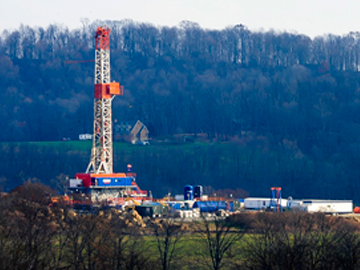Unconventional Reservoirs
This course will be taught in English
Fees with academic credits:
*If you are in Colombia $4.024.000 COP
*If you are abroad USD $1118
For enrollment click here
Fees without academic credits:
*If you are in Colombia $3.168.000 COP
*If you are abroad USD $880
For enrollment click here
Learn how to make your payment here
Schedule: monday, tuesday, wednesday, thursday, friday 5:00 p.m. a 8:20 p.m.
*The schedules and modality (virtual or blended) of the courses are subject to modifications according to the provisions of the National and District Government for the management of COVID 19. The dates and times of the sessions can be consulted at mibanner.uniandes.edu.co
This course is aimed to provide a review of unconventional reservoirs– such as tight sands, coalbed methane, shales, and gas hydrates –an overview of methods used to characterize and evaluate these resources. The objective is to familiarize students with the unique aspects of unconventional reservoirs and to develop a thorough understanding and knowledge of techniques for evaluation of unconventional reservoirs.
Pre-requisites: Undergraduate level knowledge of petroleum geology, petrophysics, formation evaluation, and reservoir engineering.
Este curso hace parte del portafolio de materias de pregrado y posgrado de la Universidad abiertas a todo público.
Al participar en este curso podrás vivir la experiencia Uniandina, acceder a contenidos de calidad, tomar clases con estudiantes regulares, acceder al sistema de bibliotecas de Uniandes y participar en las actividades culturales que esta Universidad te ofrece.
Content
The following topics will be covered:- Overview: Introduction into tight sands, shales, coalbed methane (CBM), and gas hydrates; and featured unconventional plays.
- Geochemical Assessment: Types and sources of organic matter; maturity of organic matter; Vitrinite reflectance; and TOC content and determination.
- Gas Storage Mechanisms: Pore structures; storage mechanisms; adsorption; and determination adsorbed gas.
- Gas Transport Processes: Darcy, non-Darcy, and slip flow; bulk, Knudsen, and surface diffusion; and fluid flow in matrix and fracture.
- Geomechanical Considerations: Natural fracture; rock strength and failure; pore pressure and overpressure; and rock brittleness.
- Reserve and Performance Analysis: Petroleum resources classifications; estimation methodologies; material balance approach; and overview of production data analysis.
- CMG GEM Software: Reservoir simulation of oil and gas production from shale reservoirs using CMG-GEM.
Conditions
Eventualmente la Universidad puede verse obligada, por causas de fuerza mayor a cambiar sus profesores o cancelar el programa. En este caso el participante podrá optar por la devolución de su dinero o reinvertirlo en otro curso de Educación Continua que se ofrezca en ese momento, asumiendo la diferencia si la hubiere.
La apertura y desarrollo del programa estará sujeto al número de inscritos. El Departamento/Facultad (Unidad académica que ofrece el curso) de la Universidad de los Andes se reserva el derecho de admisión dependiendo del perfil académico de los aspirantes.












